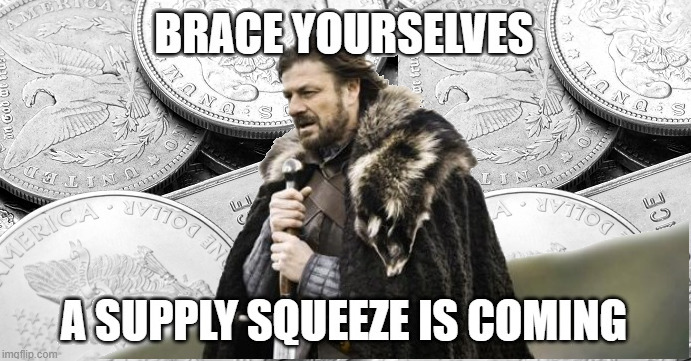A friend sent me a link this morning to a Bitcoin investment/trading app, asking if it was legit. Now that we’re in a confirmed crypto bull market I guess this kind of thing is going to become way more common. I don’t want anyone to get scammed. So here are some of the many ways you can tell if something is generally likely to be a scam, followed by some specific examples.

Elon Musk wants to give you financial freedom
You can either read up on the factors advertisers use to influence you, or just trust your gut. If they’re borrowing authority from somewhere else, making it sound like an exclusive club, and saying you must hurry to get in, they’re trying too hard.
If someone’s trying to hard-sell you on something, it’s because they know you won’t pay for it if you slow down and think it through.

Too good to be true
There is a sense in which Bitcoin and some of the stuff that’s being built on blockchain seems like it’s from the future, and the promises made about it do seem too good to be true. Bypassing restrictive 3rd-party control of your money, un-stealable elections, trustless transactions, a genuinely sound monetary system, end of the boom-and-bust cycle, rampant decentralisation and democratisation – these things are, I believe, coming.
While it might sound too good to be true, and also quite mysterious (how, exactly, does computer code achieve all this?), these are all general predictions. We can’t know exactly how it will turn out. If someone makes a specific prediction, they’re probably wrong.
If someone says that you personally will make X amount of money by doing A, B, and C, it’s definitely a scam.
Trading is hard…
Trading in general, and trading cryptocurrency in particular, is much, much – much – harder than it looks. To be consistently profitable takes years of study and practice, as well as self-knowledge and self-control. For every YOLO WallStreetBets Musk-rat millionaire there are far, far more ordinary people who tried it, blew up their accounts and went back to their day jobs.
If someone says that they have a magic system to make trading easy without you putting in any work – they’re lying.
…but buying Bitcoin is easy
If you don’t want to try to time the market, but simple buy Bitcoin or some other altcoin, that’s really easy.
Just go to a reputable exchange, make an account, upload some ID, and use it like any other online store. You can buy Bitcoin with a credit card very easily.
Reputable exchanges include but are not limited to Binance and Coinbase.
If someone offers to be a broker for you to buy Bitcoin – they’re a scammer.
Trading is unpredictable
Even if you put in the work to become great, or to create your own trading algorithm that channels your greatness, you will have up and down days, weeks, and months. No-one wins all the time. Trading is a game of probabilities. You first get the odds on your side and then play over and over, and on average you win more than you lose. Even (especially) the best traders in the world go into each trade knowing they could lose and accepting it.
If someone says their system always has a specific winrate (they often quote a very specific number like 92.7% to sound convincing) – they’re misleading you.
Just give us your money!
There are some trading systems and signals that trade for you and are not scams. Some of them can even make money, although not reliably. But legit ones do so by feeding signals to your exchange account via API. You control your exchange account. You control the level of API access. You never give them access to withdraw money, so all they can do is to trade well or badly for you, for as long as you let them. If a scheme asks you to deposit your money into their system, there’s nothing to stop them keeping it. You just gave it to them. Throw yourself a putz party and promise not to do it again.
If they want you to deposit money just so they can trade or “invest” it for you – it’s a scam.
For Make Benefit Glorious Nation of Kazakhstan
Fake sites often make convincing copies of real ones, but the new text that they write is atrocious. It’s usually full of spelling errors and non-sequiturs. If someone really had a money-printing system, they would hire an actual writer to make a good impression. If something is well-written, that doesn’t mean it’s for real, but..
If something is badly written, it is not legit.

Too Much Information
If you already have crypto stuff like Metamask installed, make damn sure you don’t give permissions out to any website you don’t trust, or they will steal All. Your. Coinz.
Don’t Google anything
Or be careful if you do. Scammers can run adverts that look similar to genuine websites, temporarily game the search results to appear at the top, or even recreate legitimate websites down to the last detail, in order to steal your data.
Use bookmarks, not search.
A good place to start is coinmarketcap.com. They list exchanges and project websites for just about any token you could imagine.
Examples
I’m not going to list actual dodgy websites, but here are some particular specific types of scams to look out for.
Fake Twitter giveaways – copycat accounts post replies to real accounts featuring fake giveaways.
Mining Bitcoin or other cryptocurrency – unless you have cheaper electricity than China and a million dollars to spend on hardware, you’re going to lose that contest.
Pump-and-dump signals groups – these groups exist so that the founders can dump on the new guys. Avoid.
Hope that covers most of them. Stay safe, everyone!
Want more to read? Here are my latest articles:













